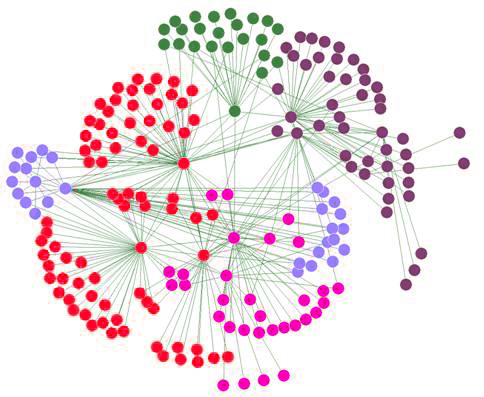Three quick takes on the LinkedIn - hiQ Labs news
First the news in case you missed this yesterday.
From our pals at Fortune:
A U.S. federal judge on Monday ruled that Microsoft's LinkedIn unit cannot prevent a startup from accessing public profile data, in a test of how much control a social media site can wield over information its users have deemed to be public.
U.S. District Judge Edward Chen in San Francisco granted a preliminary injunction request brought by hiQ Labs, and ordered LinkedIn to remove within 24 hours any technology preventing hiQ from accessing public profiles.
And a little bit on the back story, in case you had not been following this case over the last few months:
The dispute between the two tech companies has been going on since May, when LinkedIn issued a letter to hiQ Labs instructing the startup to stop scraping data from its service.
HiQ Labs responded by filing a suit against LinkedIn in June, alleging that the Microsoft-owned social network was in violation of antitrust laws. HiQ Labs uses the LinkedIn data to build algorithms capable of predicting employee behaviors, such as when they might quit.
Got all that?
Seems pretty simple, but at the same time the ulitmate outcome of this case (LinkedIn will almost certainly appeal this ruling) could be pretty important not just for LinkedIn and hiQ Labs, but also for you and me and everyone else who's data/profiles are at the core of this case.
Three quick takes from me since it's my blog...
1. While we are all pretty aware and comfortable with the social network concept of 'You are not the user, you are the product', most of us have continued to rationalize this away as it pertains to our usage and participation on sites like LinkedIn and Facebook. If we get enough utility and value from being a member of LinkedIn, (networking, job opportunities, sales leads, etc.), then we are ok with LinkedIn building their business around selling access to and ways to interact with our profile data. But even if we are ok with LinkedIn earning revenue in this way, are we as comfortable with a third party like hiQ doing much the same? When you and I signed up for LinkedIn, I don't recall any T&C that asked if that would be ok? I personally get value from LinkedIn. I doubt the same can be said for hiQ.
2. hiQ's business seems to be about aggregating and analyzing public LinkedIn profile data and then building out a set of tools that can help organizations make predictions about potential turnover. They are making a pretty big assumption that the 'right' amount of people have up-to-date, accurate, and meaningful profiles. And I think that is a pretty big assumption. I had to look up about 5 people on LinkedIn today, and two of them I am 100% don't have their current job title listed correctly. And these are the kinds of folks that use LinkedIn pretty regularly.
3. And despite the above caveat about the completeness and accuracy of user profiles, it is indeed true that LinkedIn (courtesy of all of us), do possess an incredible amount of workforce data. Companies, jobs, career progression, contacts, etc. All good and important stuff. But you know who else possesses an even more accurate and more detailed data set about workforces, compensation, job moves, career paths, mobility andmore? Your current HR Tech provider(s), that is who. The bigger cloud HR providers, (ADP, Oracle, Ultimate, SAP, Workday, Infor, and more), all have incredibly detailed data sets on people. Where thry work, how much they earn, where they went to school, how their careers have evolved, etc. And these providers are all taking positive and aggressive steps to create valuable tools and insights from these large data sets. Plus, I would gather that while the data in your HRMS might not be 100% perfect, it is likely closer to the truth than the stuff on the average LinkedIn profile. If you haven't yet, talk to your HR tech provider about what they are doing to create new tools to help you that are based on the knowledge that can be gleaned from millions of data points in the cloud.
I will keep an eye on the LinkedIn - hiQ case to see how it develops, but if nothing else it has served as a semi-occasional reminder that once it is on the internet, data flows like water. And you probably can't hold it back forever.
Happy Wednesday.

 Steve
Steve


